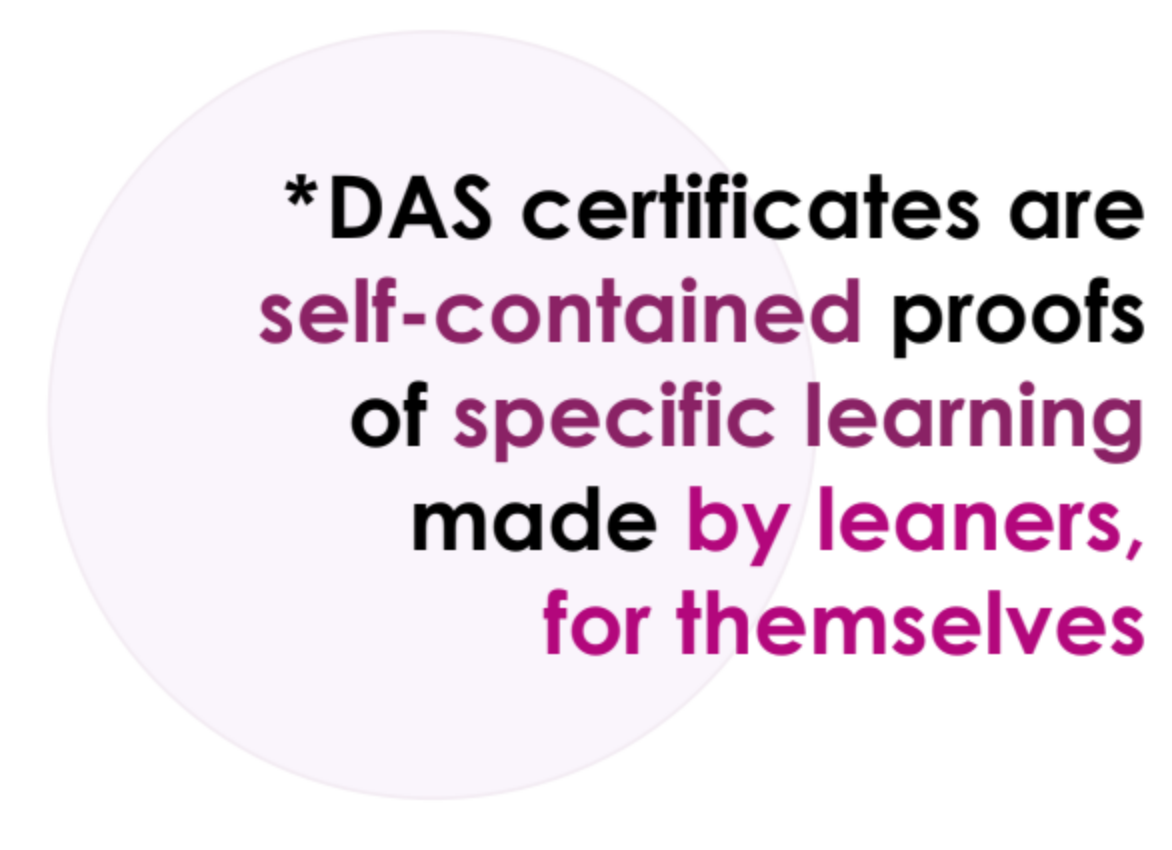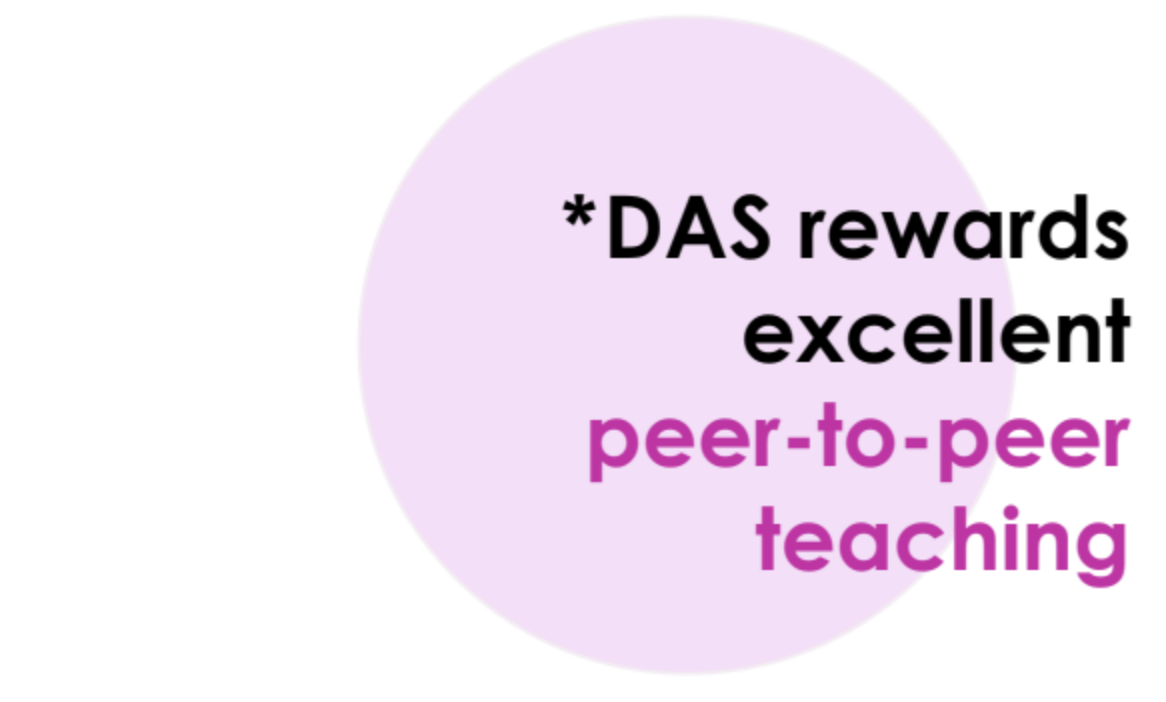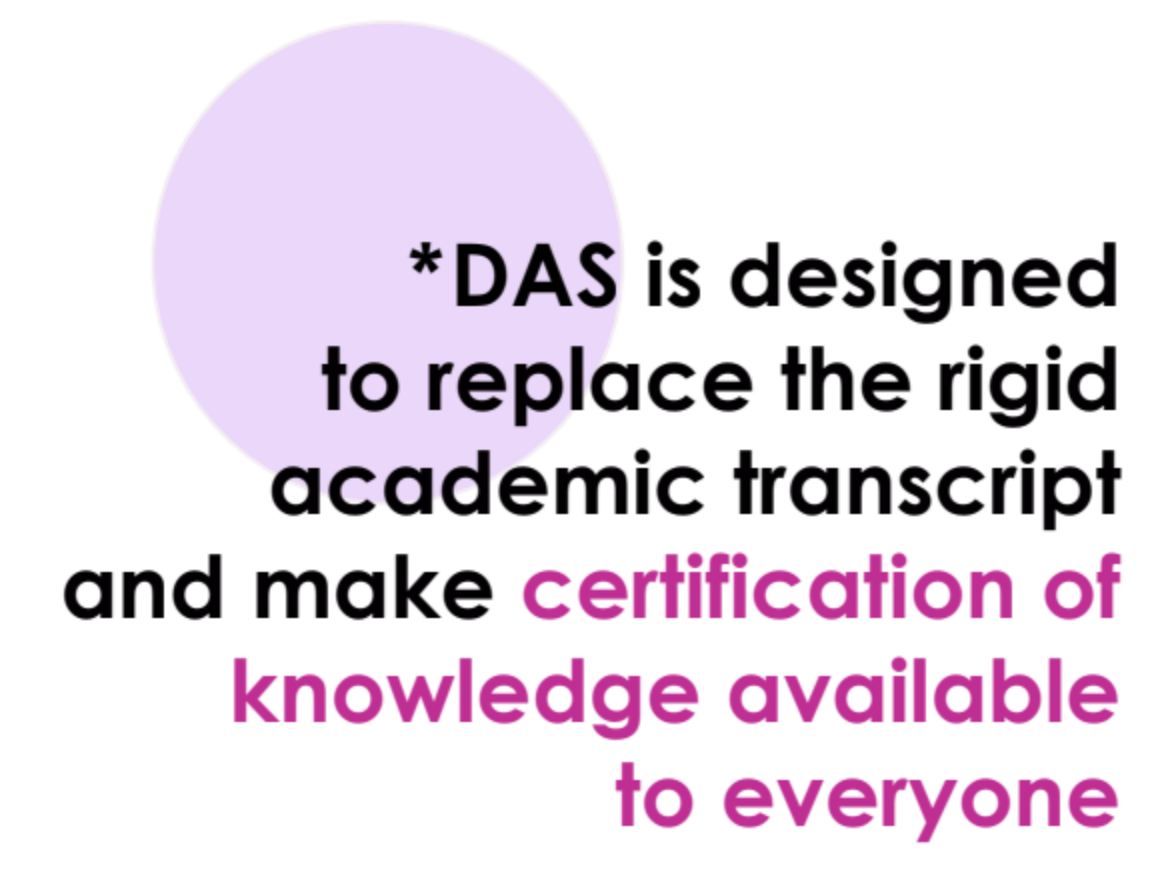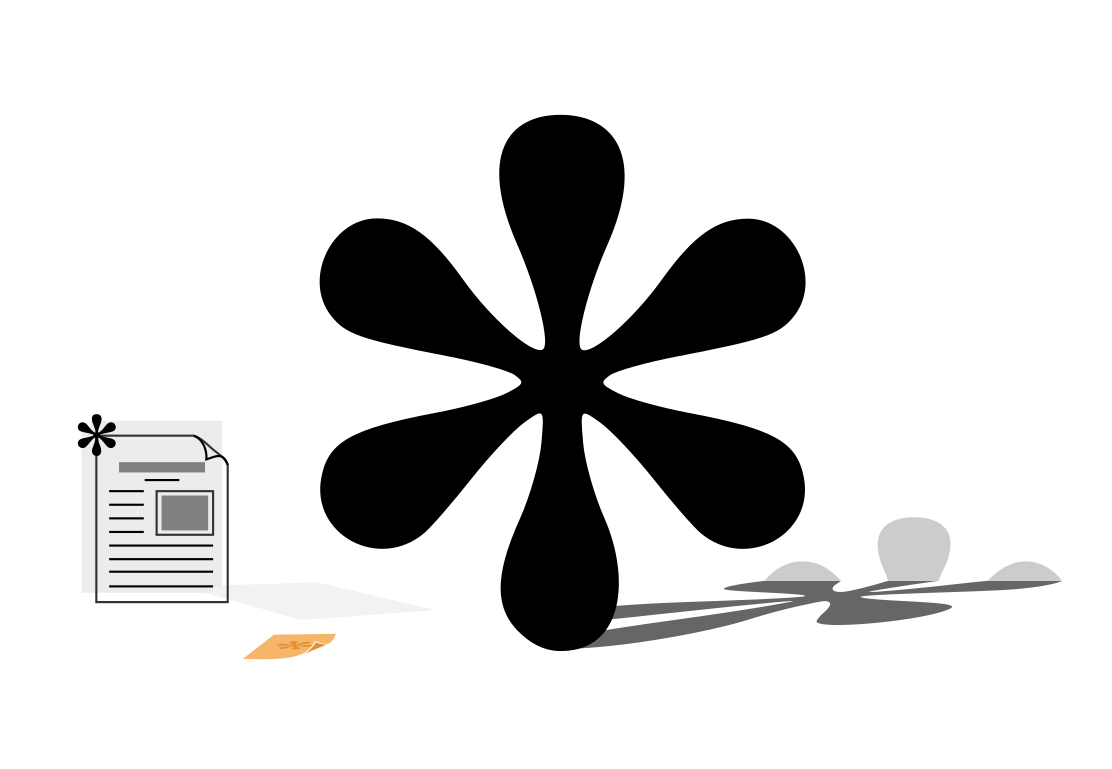
|
*DAS helps you organize and present your accomplishments
As a learner using *DAS, how you learn is up to you. Do your own research, go to school, or learn from a talented friend. *DAS is designed to give people credit for teaching you, so don’t be reserved: ask anyone to help you learn anything. Document your learning using *DAS certificates and connect them to create your interactive and sharable learning portfolio. Image by Dave Akshar |

|
||||||||||||

|
Use of *DAS implicitly aligns learners’ motivations with knowledge sharing and the formation of new learning communities. Organizations can benefit from *DAS by accelerating or making valuable the learning and teaching that happens all the time between peers. Everyone in your organization has something valuable to share with others, and *DAS helps show how your organization values such acts of knowledge sharing. Image by Ketut Subiyantu |

|
||||||||||||

|
The effect of *DAS is something between an interview, a resume, a transcript, and a personal website, all in an interactive format. Rather than reviewing lots of scattered material, receive an interactive portfolio where applicants have connected all their certificants of informal and formal learning. *DAS will also allow the applicant to attach awards (references from mentors or peers) on individual certificates, where you know the awarder is staking their own reputation. As you rate the credibility of more certificates made by people who have issued and received awards, the work of reviewing applications will become increasingly fast and reliable. Image by Andrea Piacquadio |

|
||||||||||||
| How it works
The key component of *DAS is the certificate. Learners create certificates with a description and attach a case proving their mastery of this specific skill. When learners share their certificates, reviewers will rate the credibility of the case and how it matches up with the description. |
For learners
In contrast to the industrial-era school model, the *DAS protocol is designed for you to pursue learning on your own terms while cultivating a rigorous portfolio demonstrating your abilities. |
For communities
A company or school can benefit from integrating the *DAS protocol into their rituals and culture. By teaching and awarding peers, people in your organization will be encouraged to spread knowledge within your community. |
For reviewers
you want to review someone’s learning portfolio to better understand whether there’s a good fit—in short, whether they have the competence you are looking for. By using the *DAS protocol, you can achieve this goal in a short time with a reliable assessment of a person’s qualitative learning portfolio. |
Get involved
In the future *DAS aims to harness informal learning by validating knowledge where conventional academic prestige is not accessible. |
||||||||||
